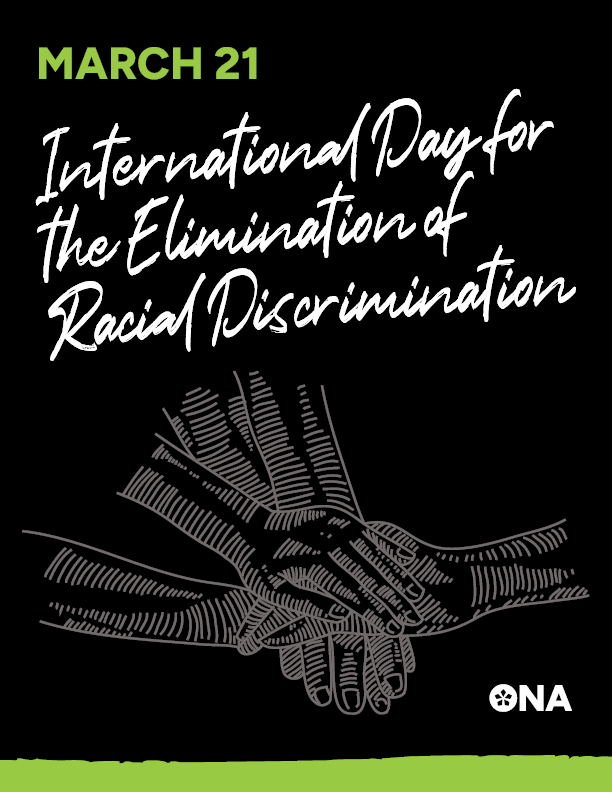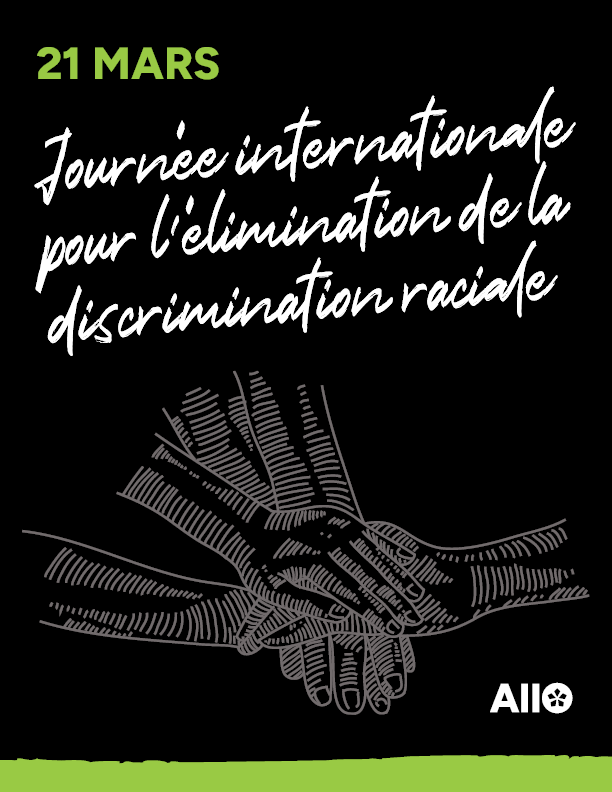March 21 is the International Day for the Elimination of Racial Discrimination
March 11, 2024
Every year on March 21, we join with unions, human rights activists and organizations worldwide in recognizing the International Day for the Elimination of Racial Discrimination (IDERD.)
On this day in 1960, police in Sharpeville, South Africa killed 69 people participating in a peaceful demonstration against apartheid. In 1966, the United Nations (UN) proclaimed March 21st as the International Day for the Elimination of Racial Discrimination, to commemorate this tragedy and further the global fight to end all forms of racism and racial discrimination.
The knowledge, compassion and determination of nurses and health-care professionals make them leaders and role models in their communities. They lead by example and stand up for the human rights of their patients, clients and coworkers, when they recognize and speak out against racial discrimination and intolerance.
We stand against racism, racial discrimination and intolerance. We stand for unity, inclusion and respect for diversity.

Events
We encourage ONA members, family, and friends to join us in recognizing the International Day for the Elimination of Racial Discrimination by participating in events in your community.
Have photos you'd like to share with the ONA community? Submit them via email to digital@ona.org, or tag us on social media.
Materials
Learn More
- ONA - Human Rights and Equity
- ONA - Human Rights and Equity Caucus
- ONA - Anti-Racism and Anti-Oppression
- United Nations - International Day for the Elimination of Racial Discrimination
- Canadian Race Relations Foundation
- Ontario Federation of Labour - Anti-Racism Resource List
- United Nations - TOGETHER campaign
- Federal Anti-Racism Secretariat
- Ontario Human Rights Commission
Microaggressions and Allyship
What is a microaggression?
This term was coined to describe brief, casual and commonplace and daily verbal, behavioral or environment indignities whether intentional or unintentional that communicate hostile derogatory or negative attitudes towards Black or Indigenous people or persons of colour.
What is an example?
- Colour blindness – expressing a belief that race doesn’t make a difference in life – i.e. ‘If you just work harder, you’ll succeed.’
- Assuming that a Black, Indigenous or person of colour employee is of a lesser employment status.
- Referring to Black or Indigenous people or persons of colour as “you people.”
How microaggressions can affect wellbeing in the workplace?
- Racial microaggressions are constant stings and barbs.
- No matter what form they come in, microaggressions can contribute to a toxic working environment.
- They might seem innocuous, but over time, these incidents and comments can lead to low self-esteem, feelings of alienation and impact mental health.
Allyship
- Become aware of your own biases and racism.
- Confront those beliefs and educate yourself.
- Tell a person exhibiting a micro aggression that it is not acceptable.
- Take steps to support the individual who has been targeted.
Anti-Racism and Anti-Oppression
In ONA’s Anti-Racism Member Advisory Team and ONA’s Anti-Racism and Anti-Oppression Working Group launched a series of resources to bring awareness to current issues impacting those who are Indigenous, Black, Racialized and members of historically marginalized communities.
Visit our Anti-Racism and Anti-Oppression page for the latest news and resources, including our Anti-Racism and Anti-Oppression Action Plan.
For further information, questions or comments, email arao@ona.org.
Pour en savoir plus, ou si vous avez des questions ou des commentaires, envoyez un courriel à arao@ona.org.


